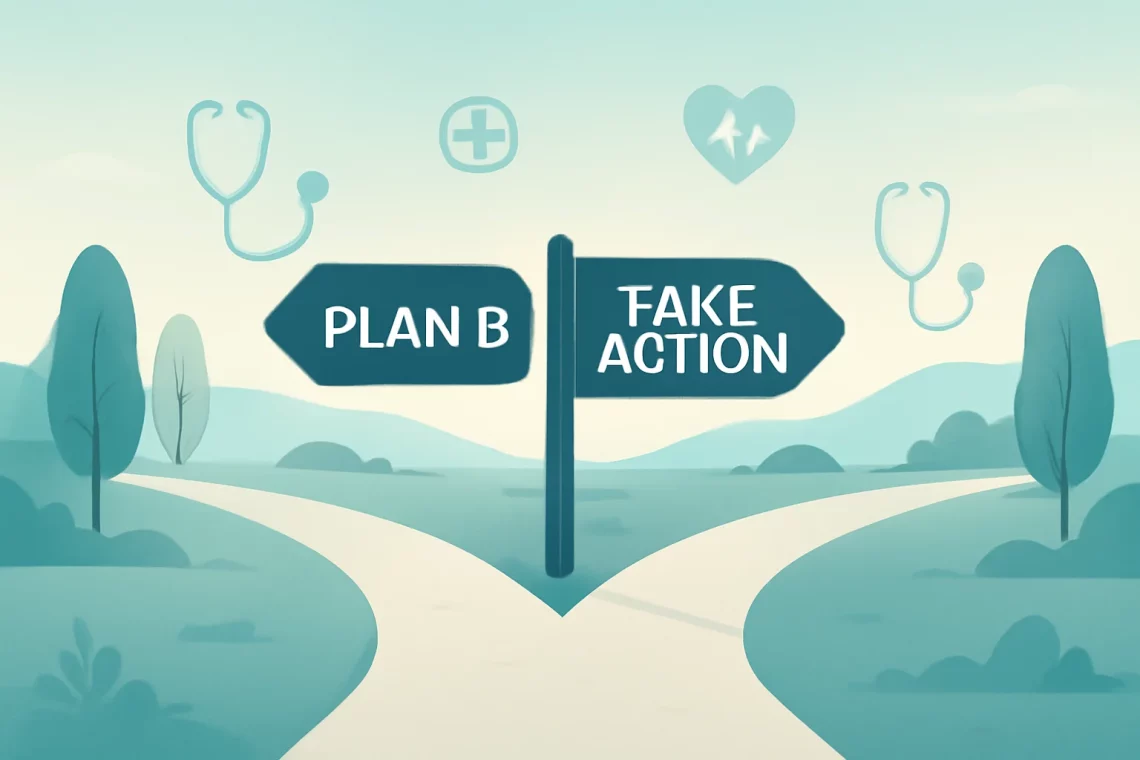
Plan B vs Take Action: Which Strategy Leads to Success?
In today’s fast-paced world, the concept of having a backup plan—often referred to as “Plan B”—is more relevant than ever. As we navigate through our personal and professional lives, the idea of preparing for potential setbacks or failures has become ingrained in our thinking. This proactive approach can provide a sense of security, allowing individuals to feel more in control of their circumstances. However, there’s an inherent tension between the safety of having a Plan B and the boldness required to take decisive action towards our goals.
The dichotomy between planning and action can be particularly pronounced in various aspects of life, from career choices to personal development. While having a safety net might seem wise, it can also lead to complacency and a fear of fully committing to one’s aspirations. This raises essential questions about the nature of success and the best strategies for achieving it. Is it better to hedge our bets with a backup plan, or is the key to progress found in unwavering commitment and action?
As we delve deeper into this topic, we’ll explore the implications of relying on a Plan B versus the necessity of taking action. Understanding this dynamic can not only shape our decision-making processes but also impact our overall success and fulfillment in life.
The Importance of Having a Plan B
Having a Plan B can be a crucial element in achieving one’s goals. It serves as a safety net, which can alleviate anxiety about the potential for failure. The comfort derived from knowing that there’s an alternative route can empower individuals to take risks they might otherwise avoid. This sense of security can encourage people to pursue ambitious dreams, as they feel less threatened by the possibility of stumbling along the way.
Moreover, a well-thought-out Plan B can provide clarity and direction. It forces individuals to think critically about potential obstacles and develop strategies to overcome them. This foresight is invaluable, especially in competitive fields where the landscape can change rapidly. For instance, entrepreneurs often need to pivot quickly in response to market demands. Having a backup plan allows them to adapt without losing momentum.
Additionally, a Plan B can enhance resilience. Life is inherently unpredictable, and setbacks are a natural part of any journey. When individuals have a backup plan, they are more likely to bounce back from failures, learning from their experiences rather than being deterred by them. This resilience is essential not just for personal growth, but also for maintaining motivation in the face of challenges.
However, it’s important to note that while Plan B can provide comfort and security, it should not serve as an excuse for inaction. The danger lies in becoming overly reliant on this backup, which can lead to a lack of commitment to the primary goal. Striking the right balance between having a Plan B and fully investing in one’s primary aspirations is crucial for long-term success.
The Risks of Over-Reliance on Backup Plans
While the benefits of having a Plan B are apparent, there are significant risks associated with over-reliance on backup plans. One of the most critical concerns is the potential for complacency. When individuals have an alternative route ready, they may become less motivated to put in the hard work required to achieve their primary goals. This can lead to a cycle of procrastination, where the backup plan becomes a tempting escape, preventing individuals from fully engaging with their main objectives.
Moreover, an overemphasis on backup plans can lead to a lack of focus. When people spread their efforts too thin, attempting to pursue multiple paths simultaneously, they may dilute their impact. In many cases, success requires concentrated effort and commitment to a single course of action. The more fragmented one’s attention becomes, the less likely they are to achieve their desired outcomes.
Another risk is the opportunity cost associated with constantly preparing for alternatives. Time and resources spent developing backup plans could often be better invested in refining skills, networking, or pursuing innovative solutions within the primary goal. This diversion can hinder progress, as individuals may become preoccupied with “what if” scenarios rather than taking bold steps forward.
Additionally, an ingrained fear of failure can emerge from an over-reliance on backup plans. When individuals prioritize safety over ambition, they may develop an aversion to taking risks. This fear can stifle creativity and innovation, ultimately limiting personal and professional growth. To combat this, it’s essential to cultivate a mindset that embraces challenges and views failure as an opportunity for learning and development.
The Power of Taking Action
Taking decisive action is often heralded as the cornerstone of success. Unlike the safety net provided by a Plan B, action requires commitment and a willingness to embrace uncertainty. This proactive approach can lead to significant breakthroughs, as individuals push past their comfort zones and explore new opportunities.
The act of taking action itself often breeds motivation. When individuals see tangible results from their efforts, even small ones, it can create a positive feedback loop that encourages further progress. This momentum is crucial in maintaining enthusiasm and drive, making it easier to tackle larger challenges as they arise.
Moreover, taking action fosters a sense of ownership over one’s journey. When individuals actively pursue their goals, they become more invested in the outcomes. This engagement can lead to deeper insights about personal strengths and weaknesses, ultimately facilitating growth and improvement. Individuals who take action are more likely to learn from their experiences, adapting their strategies based on real-world feedback rather than hypothetical scenarios.
However, it’s important to recognize that taking action does not mean being reckless. It’s about making informed decisions and embracing calculated risks. While a Plan B can offer comfort, the most successful individuals often rely on their ability to pivot and adapt as they navigate the complexities of their journeys.
In conclusion, the interplay between having a Plan B and taking action is nuanced. While backup plans can provide security and resilience, they should not overshadow the importance of commitment and decisive action. Striking the right balance between these two approaches can significantly influence personal and professional success.
**Disclaimer:** This article is for informational purposes only and does not constitute medical advice. For any health-related issues, please consult a qualified healthcare professional.




